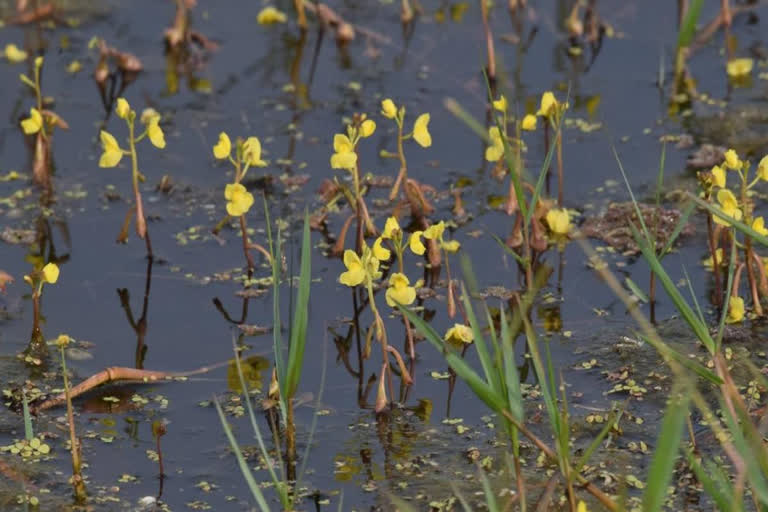Keoladeo National Park in Rajasthan has recently captured attention due to the significant presence of a rare carnivorous plant, Utricularia, commonly known as bladderworts. This season has seen a notable increase in their population, adding to the park’s biodiversity. Experts emphasize that Utricularia contributes positively to the ecosystem by preying on small insects, thus maintaining environmental balance. The plant plays a vital role in regulating insect populations, which is essential for the health of the local ecosystem.
Unique Traits of Utricularia
Utricularia employs bladder-like traps to capture small organisms such as protozoa, insects, larvae, mosquitoes, and even tadpoles. Once an organism enters the trap, it becomes ensnared and perishes. Terrestrial species of Utricularia thrive in waterlogged soils, where they efficiently trap small aquatic creatures.
Ideal Habitat and Growth Conditions
The proliferation of Utricularia in Keoladeo National Park is largely attributed to the abundant water supply from the Panchana Dam. This water source creates optimal conditions for the plant’s growth. Observations indicate the presence of Utricularia in the L, K, and B blocks of the park. While the plant is not a new discovery, its growth has surged during periods when the park received water from the dam in the past.
Biodiversity of Keoladeo National Park
Keoladeo National Park, also known as Keoladeo Ghana National Park, is celebrated for its rich biodiversity. It hosts thousands of native, resident, and migratory birds, especially during the winter season, with at least 400 bird species recorded. Beyond avian diversity, the park is home to 20 species of fish, 70 species of reptiles and amphibians, and 50 mammalian species. It also boasts over 60 unique Lepidopteran species and nearly 400 plant species.
Historical Significance of the Park
Initially developed as a waterfowl hunting reserve by Maharaja Suraj Mal of Bharatpur, Keoladeo National Park transitioned into a bird sanctuary in 1956 and was designated a protected area in 1971. It gained national park status in 1982 and was recognized as a UNESCO World Heritage Site in 1985, highlighting its global ecological significance.
Ecological Importance of Carnivorous Plants
The widespread growth of carnivorous plants like Utricularia plays a crucial role in maintaining ecological equilibrium. By controlling populations of small insects and microorganisms, these plants support overall biodiversity. Their presence in Keoladeo National Park underscores the intricate interdependence of species within this vibrant ecosystem.




